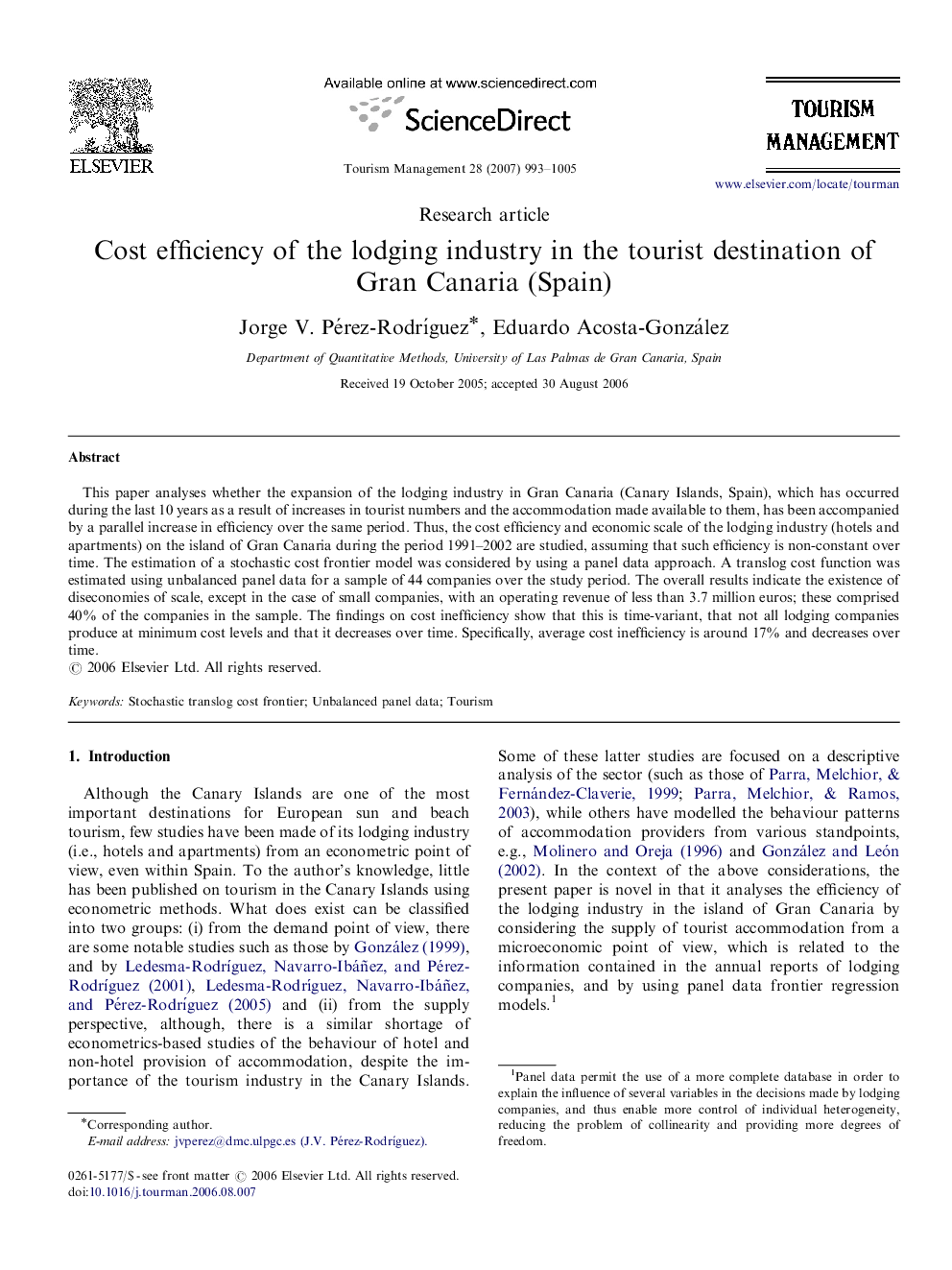| کد مقاله | کد نشریه | سال انتشار | مقاله انگلیسی | نسخه تمام متن |
|---|---|---|---|---|
| 1013298 | 939177 | 2007 | 13 صفحه PDF | دانلود رایگان |

This paper analyses whether the expansion of the lodging industry in Gran Canaria (Canary Islands, Spain), which has occurred during the last 10 years as a result of increases in tourist numbers and the accommodation made available to them, has been accompanied by a parallel increase in efficiency over the same period. Thus, the cost efficiency and economic scale of the lodging industry (hotels and apartments) on the island of Gran Canaria during the period 1991–2002 are studied, assuming that such efficiency is non-constant over time. The estimation of a stochastic cost frontier model was considered by using a panel data approach. A translog cost function was estimated using unbalanced panel data for a sample of 44 companies over the study period. The overall results indicate the existence of diseconomies of scale, except in the case of small companies, with an operating revenue of less than 3.7 million euros; these comprised 40% of the companies in the sample. The findings on cost inefficiency show that this is time-variant, that not all lodging companies produce at minimum cost levels and that it decreases over time. Specifically, average cost inefficiency is around 17% and decreases over time.
Journal: Tourism Management - Volume 28, Issue 4, August 2007, Pages 993–1005